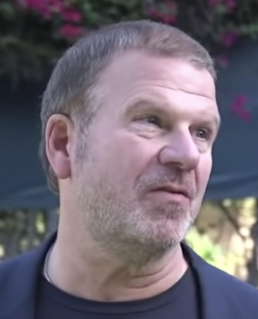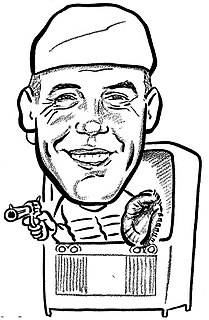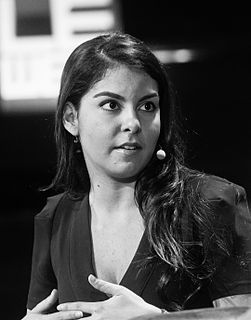A Quote by Safra A. Catz
What happened in the past can help you know what's going to happen in the future. That insight brings a next level of intelligence not just to sales and marketing but to ERP, where you can save more money in procurement or figure out whether the people you recruit are going to be successful in your organization.
Related Quotes
Most argument, and in fact most conflict, has nothing to do with the present. It's always about the past or the future. People can't agree on the details of what has happened or is going to happen. But we rarely know what has happened, and we never know what is going to happen. What is really at dispute is how we will deal with not knowing.
None of our films look alike, we are very dialectical in our approach to each one, and 'Hoop Dreams' was no exception. That's what I love about documentary filmmaking, we never know where the story is going, we don't know what is going to happen next, and we're inside a culture of people that you have to figure out in many ways. It's a relationship between what you thought might have been the story, and what happens in the 'field.' Out of that comes the story, which was exactly what happened with 'Hoop Dreams.'
Why don't we all just go crazy when we know were going to croak? Because the mind's a monkey. You put things in departments and you go ahead. You go on and plan for the future and assume that the future's going to work out okay. Yet we know that sooner or later we're all going to be eating worms, whether it's fifty years or sixty. It might be tomorrow. It might happen today.
The only advice I can give is to surround yourself with people who are friends and people who believe in you and your material and who are going to help you take it to the next level. It doesn't mean you don't listen to criticism, but you listen to it and edit it, and you figure out what you can take.
That's what I love about documentary filmmaking, we never know where the story is going, we don't know what is going to happen next, and we're inside a culture of people that you have to figure out in many ways. It's a relationship between what you thought might have been the story, and what happens in the 'field.'
The only advice I can give those who want to sell thei films is to surround yourself with people who are friends and people who believe in you and your material and who are going to help you take it to the next level. It doesn't mean you don't listen to criticism but you listen to it and edit it and you figure out what you can take.
It just brings a different element to the table when you're wrestling with a guy as a partner because you don't know what's going to happen. When you have just a regular women's match or regular men's match you know they're going to fight. When there's a little bit of a mixture, you never know what's going to happen, and I think it's a lot of fun.
During your lifetime, the people of our culture are going to figure out how to live sustainably on this planet--or they're not. Either way, it's certainly going to be extraordinary. If they figure out how to live sustainably here, then hum anity will be able to see something it can't see right now: a future that extends into the indefinite future. If they don't figure this out, then I'm afraid the human race is going to take its place among the species that we're driving into extinction here every day--as many as 200--every day
There's an obligation to let people know where their money is going, so the tour has an educational aspect, mostly as a way to thank people. But the most practical use is to raise money and do the research to figure out the proper ways to spend it. You want to make sure that the money doesn't just go somewhere where it does more harm than good.
It's important for closet gay athletes everywhere, not just at the professional level, but more importantly athletes at the younger level in high school and college, to understand they do have support around them and that they can come out and feel comfortable. And honestly, that is going to help save lives.
My job is to cover the hell out of the story, very aggressively. The real place to be courageous if you're a news organization is where you put your people to cover the story. It's making sure that you have people going to Baghdad. It's making sure that you figure out how to cover the war in Afghanistan. While the journalist in me completely stands with them, the editor of the New York Times in me thinks my job is to figure out what the hell happened and cover the hell out of it, and that's more important than some symbolic drawing on the front page.

































